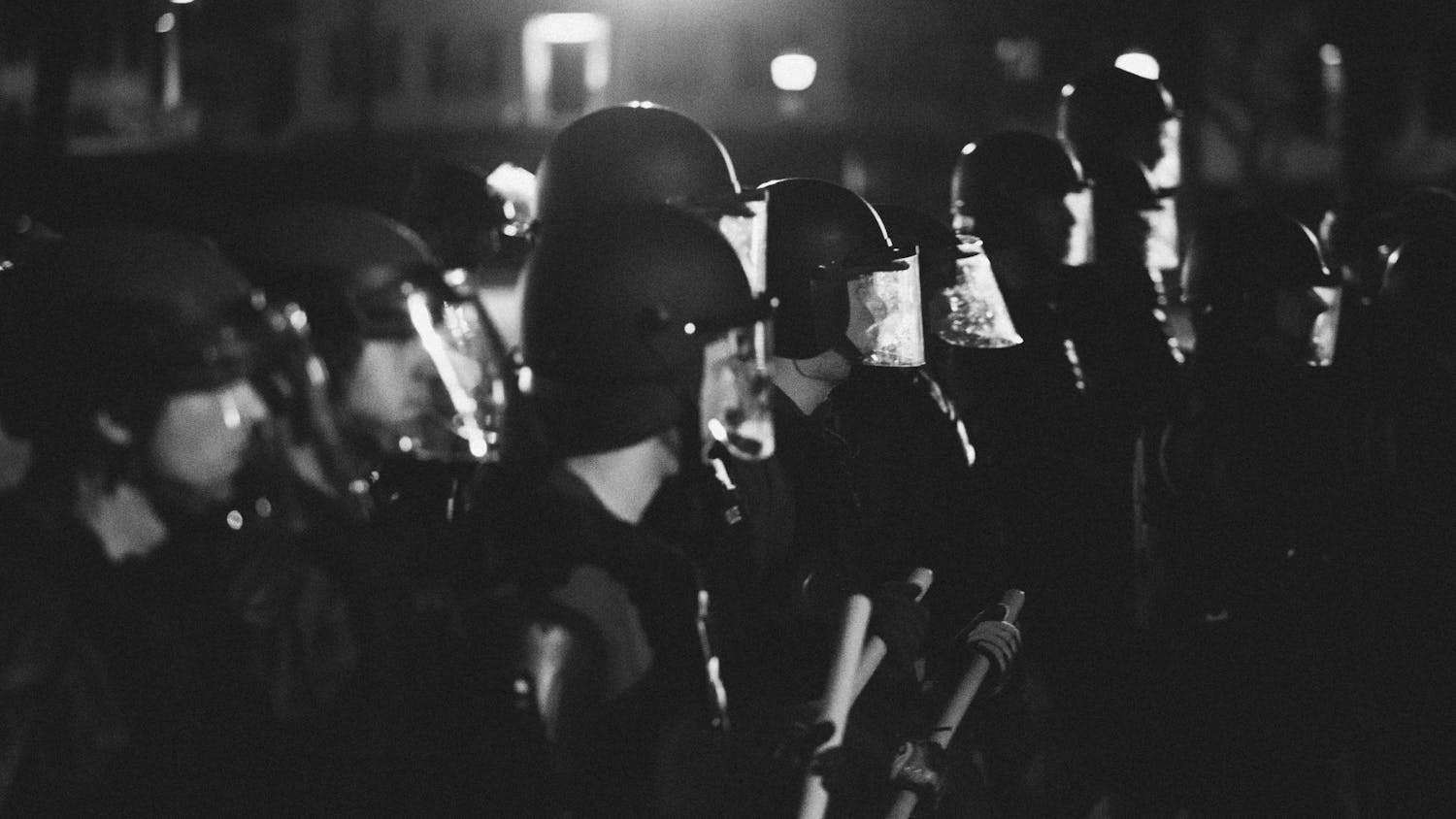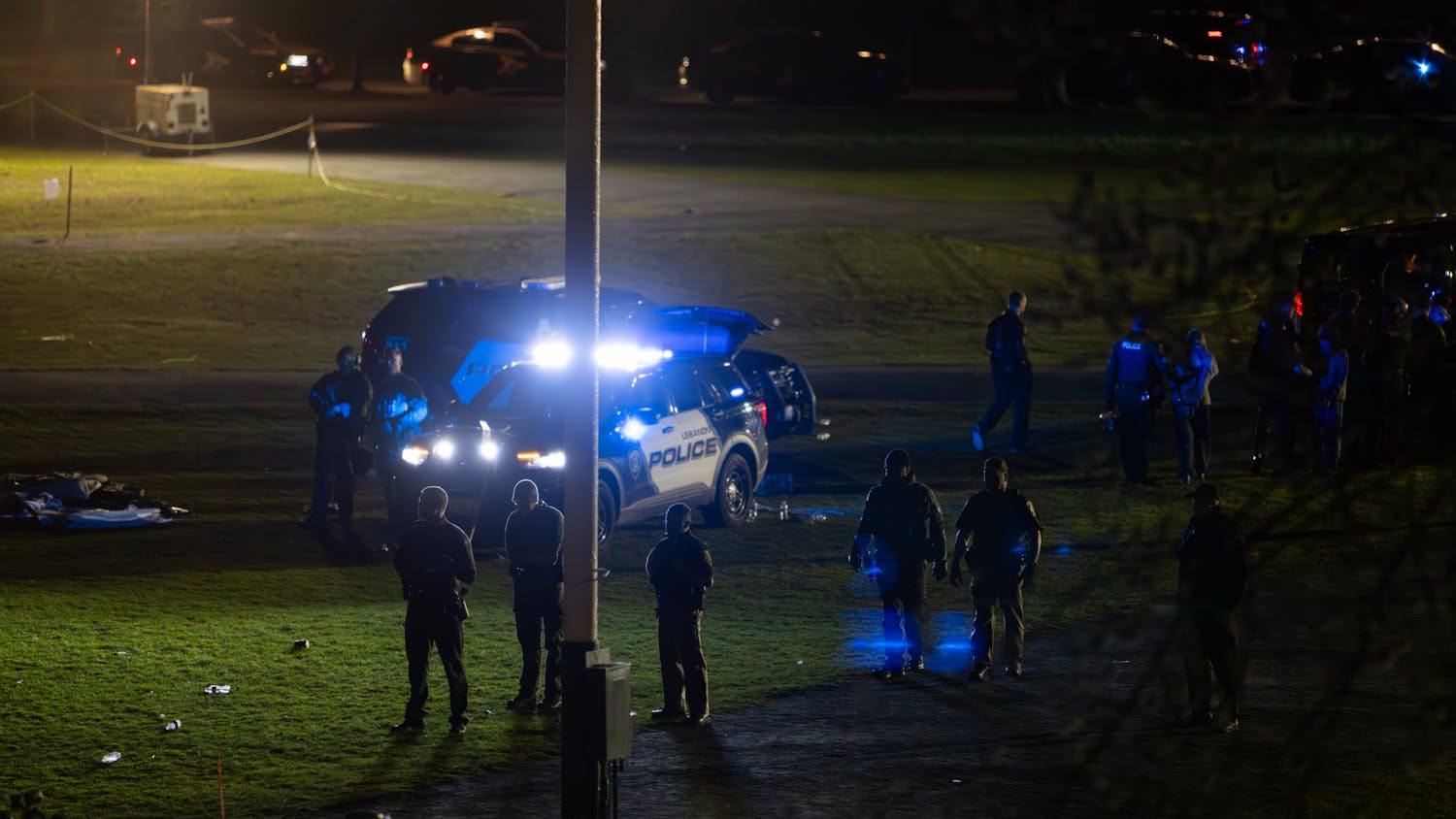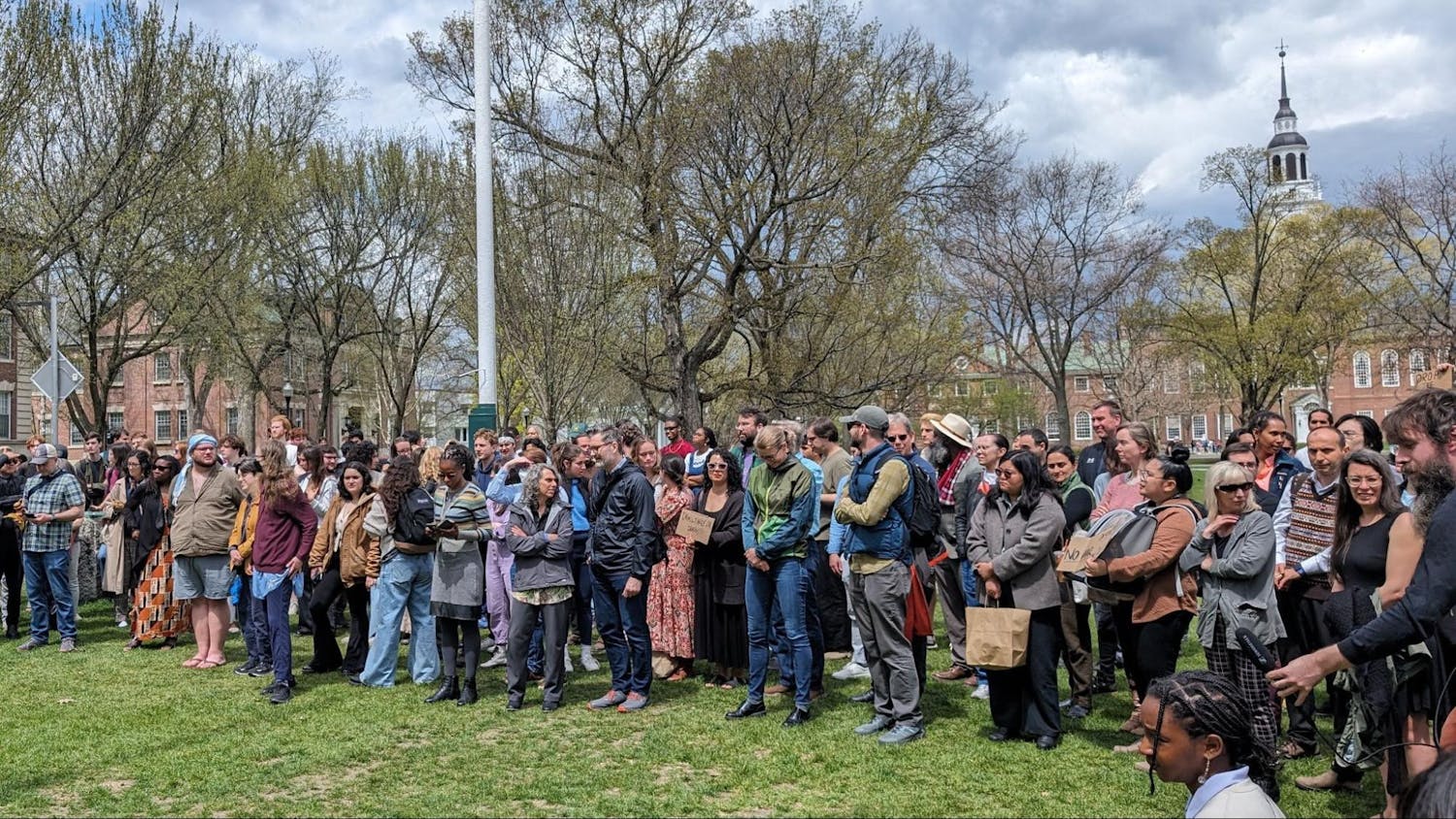Former College President James Wright will receive the New England Board of Higher Education's Eleanor M. McMahon Award for Lifetime Achievement in Boston on Friday, according to a College press release. The NEBHE will recognize Wright with the award, which is one of NEBHE's four 2010 Regional Excellence Awards, because of his achievements as Dartmouth's 16th president and ongoing efforts to promote veteran education, Wright said in an interview with The Dartmouth.
NEBHE's Regional Excellence Awards are presented each year to individuals and organizations that promote and lead higher education, according to NEBHE's web site.
Wright, who said he is "very pleased" to receive the honor, stepped down as College president in July 2009, when he was succeeded by current College President Jim Yong Kim. Wright is the Eleazar Wheelock Professor of History, although he does not actively teach.
Wright worked with Sen. Jim Webb, D-Va., to help pass national legislation in 2008 that offers tuition benefits for veterans equal to those provided by the World War II GI bill.
"The GI Bill as it was drafted in the winter of 2007-2008 would have provided tuition payments for veterans at the limit of the public universities in the state," Wright said. "And I was concerned, as were others, about closing out the opportunity of going to private schools. Obviously the tuition is greater at those places."
Wright's work on the legislation focused on the Yellow Ribbon Project, which now provides opportunities for veterans to go to private colleges, he said.
"The language that we worked out was language where the school and the veteran's administration would split the difference between the public tuition and the private tuition," Wright said. "So that seems to have worked out and I think that a fair number of students are enrolled."
Wright said he also works with injured veterans, and that his recent visit to Walter Reed Army Medical Center in Bethesda, Md., was his 20th hospital visit in the last five years.
"I ask [hospitalized veterans] about themselves, try to understand what happened to them and try to encourage them to pursue their education," Wright said.
Wright's counseling program for injured veterans in hospitals and schools has now enrolled more than 500 veterans around the country, he said.
Since stepping down as College president, Wright has had time to read and "sort through papers and materials," he said. This fall, he gave a keynote speech in South Korea on American higher education and spoke at the Vietnam Memorial in Washington, D.C. on Veterans Day, he said.
Wright also delivered the annual Jefferson Memorial Lecture at the University of California, Berkeley a few weeks ago, focusing on democracy in America, according to the College press release..
"That lecture was something I had worked on for several months, so I've been able to be a historian again, and I've enjoyed working on some history," Wright said.
Wright joined the College faculty as a history professor in 1969. After serving as dean of the faculty and provost, he became the College's 16th president in 1998.
Major changes to Dartmouth's financial aid policy, a $1.3 billion fundraising campaign and the Student Life Initiative marked Wright's 11-year presidency.
The financial aid policy changes allowed students from families who earned less than $75,000 per year to attend the College tuition-free and instituted need-blind admission for international students.
Although recent budget cuts have led to changes to the College's financial aid policy the College will require students with family incomes over $75,000 to take out loans of $2,500 to $5,500 each academic year, beginning with the Class of 2015 Wright's financial aid legacy will not be significantly affected, The Dartmouth previously reported. The policy will remain unchanged for students from families with incomes lower than $75,000.
Wright also launched the $1.3 billion Campaign for the Dartmouth Experience, the largest fundraising effort in the College's history. The campaign, which began in 2002, was completed on schedule on Dec. 31, 2009.
Early in his presidency, Wright instated the controversial Student Life Initiative, in which he sought to increase social options at the College and make the Dartmouth social environment more inclusive. The SLI, launched in 1999, placed a moratorium on the formation of new single-sex Greek organizations.
The ban, which was met by student protest, was lifted in 2005, but other aspects of the initiative such as stricter keg regulations and prohibition on permanent taps in Greek houses remain in effect.
Staff writer Angie Yang contributed reporting to this article.



